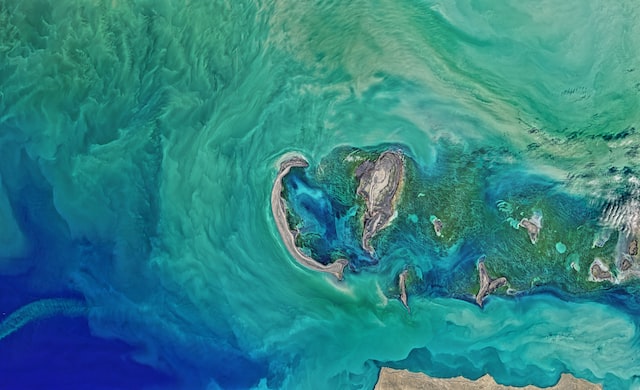Documents
This section features public documents and files uploaded by the stakeholders and custodians of the Caspian Sea environment.
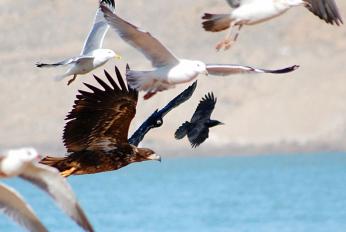 Орнитологические исследования в странах Северной Евразии : тезисы XV Междунар. орнитолог. конф. Северной Евразии, посвящённой памяти акад. М. А. МензбираThu, 23/03/2023 - 08:13Сборник включает 411 тезисов пленарных, симпозиальных и постерных сообщений, а также материалов круглых столов, представленных на XV Международную орнитологическую конференцию Северной Евразии (Минск, 2020). Рассматриваются общие и частные вопросы орнитологии, разрабатываемые учёными из 23 стран Северной Евразии. Представле
Орнитологические исследования в странах Северной Евразии : тезисы XV Междунар. орнитолог. конф. Северной Евразии, посвящённой памяти акад. М. А. МензбираThu, 23/03/2023 - 08:13Сборник включает 411 тезисов пленарных, симпозиальных и постерных сообщений, а также материалов круглых столов, представленных на XV Международную орнитологическую конференцию Северной Евразии (Минск, 2020). Рассматриваются общие и частные вопросы орнитологии, разрабатываемые учёными из 23 стран Северной Евразии. Представле
- Description
Сборник включает 411 тезисов пленарных, симпозиальных и постерных сообщений, а также материалов круглых столов, представленных на XV Международную орнитологическую конференцию Северной Евразии (Минск, 2020). Рассматриваются общие и частные вопросы орнитологии, разрабатываемые учёными из 23 стран Северной Евразии. Представлены результаты исследований по динамике численности и демографии популяций, изменению ареалов видов, региональным фаунам птиц. Обсуждаются вопросы систематики, морфологии, физиологии, оологии, поведения, палеорнитологии, биоакустики, синантропизации птиц и антропогенного воздействия на них, актуальные проблемы охраны видов и популяций, мониторинга сообществ птиц на ООПТ, а также перспективы использования Атласа птиц европейской части России. Освещены проблемы и достижения в области ресурсной, медицинской и любительской орнитологии. Предназначено для широкого круга специалистов и любителей, занимающихся изучением и охраной птиц и их местообитаний.
- Attached documents
- Metadata
- Year
- 2020
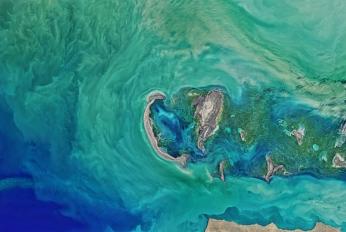 Caspian Environment Monitoring Programme - 2012Mon, 20/02/2023 - 14:41Unified, Integrated and Affordable Caspian Environment Monitoring Programme Among the Contracting Parties to the Framework Convention for the Protection of the Marine Environment of the Caspian Sea was welcomed at COP4, Moscow, Russian Federation, 10-12 December 2012. The objectives of the EMP to develop a framework providi
Caspian Environment Monitoring Programme - 2012Mon, 20/02/2023 - 14:41Unified, Integrated and Affordable Caspian Environment Monitoring Programme Among the Contracting Parties to the Framework Convention for the Protection of the Marine Environment of the Caspian Sea was welcomed at COP4, Moscow, Russian Federation, 10-12 December 2012. The objectives of the EMP to develop a framework providi
- Description
Unified, Integrated and Affordable Caspian Environment Monitoring Programme Among the Contracting Parties to the Framework Convention for the Protection of the Marine Environment of the Caspian Sea was welcomed at COP4, Moscow, Russian Federation, 10-12 December 2012.
The objectives of the EMP to develop a framework providing the necessary data and information on the Caspian environment in order to; initially provide data on the state of the Caspian environment, highlight pollution problems, provide biological related data which will support the broad objective of tracking changes of the health and diversity of ecosystems in, and adjacent to, the Caspian Sea.
- Attached documents
- Metadata
- Year
- 2012
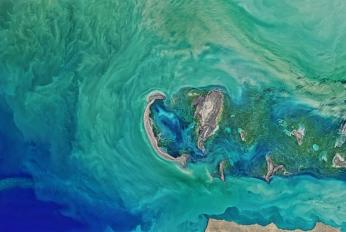 Draft Caspian Sea Plan Concerning Regional Cooperation in Combating Oil Pollution in Cases of EmergencyMon, 20/02/2023 - 14:36Draft Caspian Sea Plan Concerning Regional Cooperation in Combating Oil Pollution in Cases of Emergency (Aktau Protocol Implementation Plan). The arrangements in the Aktau Protocol Implementation Plan are intended to facilitate the development of joint response operations and to co-ordinate the use of the available resource
Draft Caspian Sea Plan Concerning Regional Cooperation in Combating Oil Pollution in Cases of EmergencyMon, 20/02/2023 - 14:36Draft Caspian Sea Plan Concerning Regional Cooperation in Combating Oil Pollution in Cases of Emergency (Aktau Protocol Implementation Plan). The arrangements in the Aktau Protocol Implementation Plan are intended to facilitate the development of joint response operations and to co-ordinate the use of the available resource
- Description
Draft Caspian Sea Plan Concerning Regional Cooperation in Combating Oil Pollution in Cases of Emergency (Aktau Protocol Implementation Plan).
The arrangements in the Aktau Protocol Implementation Plan are intended to facilitate the development of joint response operations and to co-ordinate the use of the available resources in the region. They also outline in advance the financial conditions and administrative clauses of the actions, thus permitting rapid intervention in case of emergency by removing the need for lengthy negotiations during the course of the event.
- Attached documents
- Metadata
- Year
- 2019
 Strategy for Civil Society Engagement in the Caspian Sea Marine EnvironmentMon, 20/02/2023 - 14:22Strategy for Civil Society Engagement in the Protection of the Caspian Sea Marine Environment was presented at the COP3 in Aktau, Kazakhstan, 10–12 August 2011. It contains an analysis and a number of recommendations to improve access to information and participation in decision-making and action towards the implementation o
Strategy for Civil Society Engagement in the Caspian Sea Marine EnvironmentMon, 20/02/2023 - 14:22Strategy for Civil Society Engagement in the Protection of the Caspian Sea Marine Environment was presented at the COP3 in Aktau, Kazakhstan, 10–12 August 2011. It contains an analysis and a number of recommendations to improve access to information and participation in decision-making and action towards the implementation o
- Description
Strategy for Civil Society Engagement in the Protection of the Caspian Sea Marine Environment was presented at the COP3 in Aktau, Kazakhstan, 10–12 August 2011. It contains an analysis and a number of recommendations to improve access to information and participation in decision-making and action towards the implementation of the Tehran Convention and its Protocols at the local, national and regional levels.
- Attached documents
- Metadata
- Year
- 2011
 Strategic Convention Action Programme (SCAP)Mon, 20/02/2023 - 14:16In accordance with Article 18 (2) of the Tehran Convention, the Parties developed the Strategic Convention Action Programme (SCAP). The SCAP is a comprehensive, long-term agenda and framework for the implementation of the Tehran Convention and its Protocols over a period of 10 years. It was adopted at COP 2 in Tehran, Iran,
Strategic Convention Action Programme (SCAP)Mon, 20/02/2023 - 14:16In accordance with Article 18 (2) of the Tehran Convention, the Parties developed the Strategic Convention Action Programme (SCAP). The SCAP is a comprehensive, long-term agenda and framework for the implementation of the Tehran Convention and its Protocols over a period of 10 years. It was adopted at COP 2 in Tehran, Iran,
- Description
In accordance with Article 18 (2) of the Tehran Convention, the Parties developed the Strategic Convention Action Programme (SCAP). The SCAP is a comprehensive, long-term agenda and framework for the implementation of the Tehran Convention and its Protocols over a period of 10 years. It was adopted at COP 2 in Tehran, Iran, 10-12 November 2008.
- Attached documents
- Metadata
- Year
- 2008
 Rules of Procedure of the Tehran ConventionMon, 20/02/2023 - 14:10Rules of Procedure for the Conference of the Parties to the Framework Convention for the Protection of the Marine Environment of the Caspian Sea. Adopted at COP 2 in Tehran, Iran, 10-12 November 2008.
Rules of Procedure of the Tehran ConventionMon, 20/02/2023 - 14:10Rules of Procedure for the Conference of the Parties to the Framework Convention for the Protection of the Marine Environment of the Caspian Sea. Adopted at COP 2 in Tehran, Iran, 10-12 November 2008.
- Description
Rules of Procedure for the Conference of the Parties to the Framework Convention for the Protection of the Marine Environment of the Caspian Sea. Adopted at COP 2 in Tehran, Iran, 10-12 November 2008.
- Attached documents
- Metadata
- Year
- 2008
 Financial Rules for the Administration of the Trust Fund for the Tehran ConventionMon, 20/02/2023 - 13:36Financial Rules for the Administration of the Trust Fund for the Framework Convention for the Protection of the Marine Environment of the Caspian Sea. Adopted at COP 1 in Baku, Azerbaijan, 23-25 May 2007.
Financial Rules for the Administration of the Trust Fund for the Tehran ConventionMon, 20/02/2023 - 13:36Financial Rules for the Administration of the Trust Fund for the Framework Convention for the Protection of the Marine Environment of the Caspian Sea. Adopted at COP 1 in Baku, Azerbaijan, 23-25 May 2007.
- Description
Financial Rules for the Administration of the Trust Fund for the Framework Convention for the Protection of the Marine Environment of the Caspian Sea.
Adopted at COP 1 in Baku, Azerbaijan, 23-25 May 2007.
- Attached documents
- Metadata
- Year
- 2007
 Draft Caspian Regional Action Plan on Marine LitterMon, 20/02/2023 - 12:33Marine litter, including plastic and microplastic, is a global concern affecting all the oceans and seas of the world. It poses environmental, economic, health and aesthetic problems that are rooted in poor solid waste management practices, lack of infrastructure, indiscriminate human activities and behaviours and an inadequ
Draft Caspian Regional Action Plan on Marine LitterMon, 20/02/2023 - 12:33Marine litter, including plastic and microplastic, is a global concern affecting all the oceans and seas of the world. It poses environmental, economic, health and aesthetic problems that are rooted in poor solid waste management practices, lack of infrastructure, indiscriminate human activities and behaviours and an inadequ
- Description
Marine litter, including plastic and microplastic, is a global concern affecting all the oceans and seas of the world. It poses environmental, economic, health and aesthetic problems that are rooted in poor solid waste management practices, lack of infrastructure, indiscriminate human activities and behaviours and an inadequate understanding on the part of the public of the potential consequences of their actions. Development of the Caspian Marine Litter Action Plan is embodied in the Moscow Protocol against pollution from land-based sources.
The preparation of the draft Caspian Regional Marine Litter Action Plan (CRMLAP) was undertaken by the national experts from the Caspian Sea littoral states and an international expert. For that purpose, five National Experts were contracted to provide their national inputs and contributions for the development of the Caspian Marine Litter Action Plan where the International Expert fully facilitates the development of the Caspian Marine Litter Action Plan.
- Attached documents
- Metadata
- Year
- 2020
 Agreement on Cooperation in the Field of Hydrometeorology of the Caspian SeaMon, 20/02/2023 - 10:04Agreement on Cooperation in the Field of Hydrometeorology of the Caspian Sea was signed on 29 September 2014 in Astrakhan, Russian Federation, during the Fourth Caspian Summit. The entry into force of the Agreement opens new opportunities not only for information exchange, but also for the interaction in other fields of hyd
Agreement on Cooperation in the Field of Hydrometeorology of the Caspian SeaMon, 20/02/2023 - 10:04Agreement on Cooperation in the Field of Hydrometeorology of the Caspian Sea was signed on 29 September 2014 in Astrakhan, Russian Federation, during the Fourth Caspian Summit. The entry into force of the Agreement opens new opportunities not only for information exchange, but also for the interaction in other fields of hyd
- Description
Agreement on Cooperation in the Field of Hydrometeorology of the Caspian Sea was signed on 29 September 2014 in Astrakhan, Russian Federation, during the Fourth Caspian Summit.
The entry into force of the Agreement opens new opportunities not only for information exchange, but also for the interaction in other fields of hydrometeorology ranging from carrying out of observations to forecasting of weather and climate.
The final output of this cooperation is ensuring the safety of navigation and other activities in the water area and on the coast, which depend on changes of weather and climate. Everyone working in the Caspian Sea needs accurate hydrometeorological forecasts, timely storm alerts and the information required to design hydraulic structures.
Alongside with this, hydrometeorological information is essential for environmental protection, conservation of Caspian Sea biodiversity and efficient use of its natural resources. Now hydrometeorologists and ecologists may interact more closely: due to the signing of the Agreement there emerged a legal basis for the cooperation with the Tehran Convention.
- Attached documents
- Metadata
- Year
- 2014
 Agreement on Cooperation in Emergency Prevention and response in the Caspian SeaMon, 20/02/2023 - 09:46Agreement on Cooperation in Emergency Prevention and response in the Caspian Sea was signed on 29 September 2014 in Astrakhan, Russian Federation, during the Fourth Caspian Summit. The cooperation in the field of civil protection in the Caspian Sea will contribute to disaster risk reduction and minimization of negative cons
Agreement on Cooperation in Emergency Prevention and response in the Caspian SeaMon, 20/02/2023 - 09:46Agreement on Cooperation in Emergency Prevention and response in the Caspian Sea was signed on 29 September 2014 in Astrakhan, Russian Federation, during the Fourth Caspian Summit. The cooperation in the field of civil protection in the Caspian Sea will contribute to disaster risk reduction and minimization of negative cons
- Description
Agreement on Cooperation in Emergency Prevention and response in the Caspian Sea was signed on 29 September 2014 in Astrakhan, Russian Federation, during the Fourth Caspian Summit.
The cooperation in the field of civil protection in the Caspian Sea will contribute to disaster risk reduction and minimization of negative consequences of emergency situations of natural and man-made disasters in the Caspian Sea. The agreement allows informing about the risk of an emergency, which could affect the state on the other hand, sharing experiences in the field of forecasting and monitoring of emergency situations, as well as training of the population to act in their threat and occurrence as well as to train and prepare experts in the field of civil protection educational institutions of member states.
The document is presented in all languages.
- Attached documents
- Metadata
- Year
- 2014
 Agreement on Conservation and Rational Use of the Aquatic Biological Resources of the Caspian SeaMon, 20/02/2023 - 09:29Agreement on the conservation and sustainable use of aquatic biological resources of the Caspian Sea was signed on 29 September 2014 in Astrakhan, Russian Federation, during the Fourth Caspian Summit. The Parties agree upon cooperation on (i) giving priority to the conservation of aquatic biological resources, (ii) sustaina
Agreement on Conservation and Rational Use of the Aquatic Biological Resources of the Caspian SeaMon, 20/02/2023 - 09:29Agreement on the conservation and sustainable use of aquatic biological resources of the Caspian Sea was signed on 29 September 2014 in Astrakhan, Russian Federation, during the Fourth Caspian Summit. The Parties agree upon cooperation on (i) giving priority to the conservation of aquatic biological resources, (ii) sustaina
- Description
Agreement on the conservation and sustainable use of aquatic biological resources of the Caspian Sea was signed on 29 September 2014 in Astrakhan, Russian Federation, during the Fourth Caspian Summit.
The Parties agree upon cooperation on (i) giving priority to the conservation of aquatic biological resources, (ii) sustainable use of aquatic biological resources, (iii) application of accepted international rules, (iv) ecosystem preservation and biodiversity protection, (v) conservation of aquatic biological resources in scientific research and use this as a basis of common aquatic biological resources management, and (vi) taking measures for sustainable use and conservation of aquatic biological resources in the Caspian Sea and for management of common aquatic biological resources. The Parties shall develop the cooperation by research studies, data collection, exchange of scientific and technical documents, experience and information, preventive measures for illegal, unreported and unregulated fishing and by development of short, medium and long-term programs for aquatic production and for their reintroduction into their natural habitats.
The document is presented in all languages.
- Attached documents
- Metadata
- Year
- 2014
 Convention on the legal status of the Caspian SeaMon, 20/02/2023 - 08:56The Convention on the legal status of the Caspian Sea is a treaty signed in Aktau, Kazakhstan, on 12 August 2018 by the presidents of Russia, Kazakhstan, Azerbaijan, Iran and Turkmenistan.
Convention on the legal status of the Caspian SeaMon, 20/02/2023 - 08:56The Convention on the legal status of the Caspian Sea is a treaty signed in Aktau, Kazakhstan, on 12 August 2018 by the presidents of Russia, Kazakhstan, Azerbaijan, Iran and Turkmenistan.
- Description
The Convention on the legal status of the Caspian Sea is a treaty signed in Aktau, Kazakhstan, on 12 August 2018 by the presidents of Russia, Kazakhstan, Azerbaijan, Iran and Turkmenistan.
- Attached documents
- Metadata
- Year
- 2018
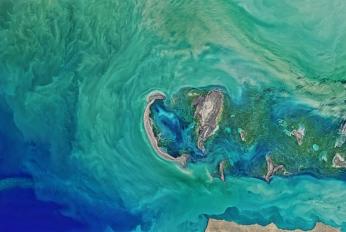 Proceedings of the Scientific Conference on the Climate Change in the Caspian Sea region - 2021Fri, 17/02/2023 - 09:23We are pleased to announce the publication of the Proceedings of the Scientific Conference on the Climate Change in the Caspian Sea region. This collection includes all the abstracts selected by the Organizing Committee of the Conference. In addition, in the Proceedings you will find introductory words by key speakers of eac
Proceedings of the Scientific Conference on the Climate Change in the Caspian Sea region - 2021Fri, 17/02/2023 - 09:23We are pleased to announce the publication of the Proceedings of the Scientific Conference on the Climate Change in the Caspian Sea region. This collection includes all the abstracts selected by the Organizing Committee of the Conference. In addition, in the Proceedings you will find introductory words by key speakers of eac
- Description
We are pleased to announce the publication of the Proceedings of the Scientific Conference on the Climate Change in the Caspian Sea region. This collection includes all the abstracts selected by the Organizing Committee of the Conference. In addition, in the Proceedings you will find introductory words by key speakers of each section and welcome addresses from the guests of the Conference.
Scientific Conference on 27 and 28 October 2021 brought well over 80 leading scientists from the countries bordering the Caspian Sea together, to take stock and give a boost to research in the region underpinning the climate change policies and actions of Azerbaijan, IR Iran, Kazakhstan, Russian Federation and Turkmenistan.
- Attached documents
- Metadata
- Year
- 2021
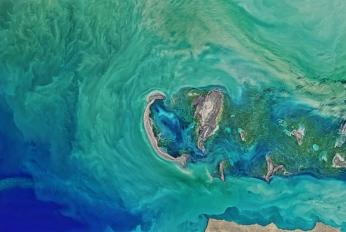 Caspian Sea State of Environment Report - SoE 2 (2019)Fri, 17/02/2023 - 09:15The present report on the State of the Environment of the Caspian Sea was developed in accordance with the requirements of the Framework Convention for the Protection of the Marine Environment of the Caspian Sea (Tehran Convention, 2003) and is one of the regional environmental cooperation mechanisms to assess the state of t
Caspian Sea State of Environment Report - SoE 2 (2019)Fri, 17/02/2023 - 09:15The present report on the State of the Environment of the Caspian Sea was developed in accordance with the requirements of the Framework Convention for the Protection of the Marine Environment of the Caspian Sea (Tehran Convention, 2003) and is one of the regional environmental cooperation mechanisms to assess the state of t
- Description
The present report on the State of the Environment of the Caspian Sea was developed in accordance with the requirements of the Framework Convention for the Protection of the Marine Environment of the Caspian Sea (Tehran Convention, 2003) and is one of the regional environmental cooperation mechanisms to assess the state of the marine environment of the Caspian Sea, in particular, pollution and its impact, based on the reports provided by the Contracting Parties and any competent international organization.
The Caspian Sea SoE 2 Report in higher resolution can be dowloaded here.
- Attached documents
- Metadata
- Year
- 2019
 Caspian Sea State of Environment Report - SoE 1 (2011)Fri, 17/02/2023 - 08:53The Caspian Sea, abundant with natural living and fossil resources, its coastal areas home to more than 15 million people, faces a series of environmental challenges. This State of the Caspian Sea Environment Report should be seen and considered as a first try out and starting point towards the creation of a shared environm
Caspian Sea State of Environment Report - SoE 1 (2011)Fri, 17/02/2023 - 08:53The Caspian Sea, abundant with natural living and fossil resources, its coastal areas home to more than 15 million people, faces a series of environmental challenges. This State of the Caspian Sea Environment Report should be seen and considered as a first try out and starting point towards the creation of a shared environm
- Description
The Caspian Sea, abundant with natural living and fossil resources, its coastal areas home to more than 15 million people, faces a series of environmental challenges.
This State of the Caspian Sea Environment Report should be seen and considered as a first try out and starting point towards the creation of a shared environmental information system promoting and securing data collection, monitoring, analysis, harmonization and public communication in support of full implementation of the Tehran Convention and its protocols. We hope that it will improve the Caspian information base, enhance the quality, accessibility and relevance of data and ultimately, contribute to strengthening the regional environmental governance framework.
The Caspian Sea SoE 1 Report in higher resolution can be dowloaded here.
- Attached documents
- Metadata
- Year
- 2011
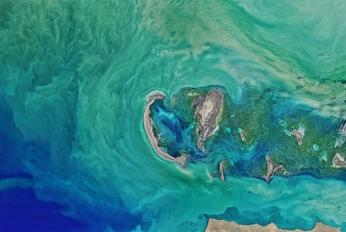 Article - Long-term and seasonal Caspian Sea level change from satellite gravity and altimeter measurementsMon, 16/07/2018 - 15:43The article examines recent Caspian Sea level change by using both satellite radar altimetry and satellite gravity data. The altimetry record for 2002–2015 shows a declining level at a rate that is approximately 20 times greater than the rate of global sea level rise. Seasonal fluctuations are also much larger than in the wo
Article - Long-term and seasonal Caspian Sea level change from satellite gravity and altimeter measurementsMon, 16/07/2018 - 15:43The article examines recent Caspian Sea level change by using both satellite radar altimetry and satellite gravity data. The altimetry record for 2002–2015 shows a declining level at a rate that is approximately 20 times greater than the rate of global sea level rise. Seasonal fluctuations are also much larger than in the wo
- Description
The article examines recent Caspian Sea level change by using both satellite radar altimetry and satellite gravity data. The altimetry record for 2002–2015 shows a declining level at a rate that is approximately 20 times greater than the rate of global sea level rise. Seasonal fluctuations are also much larger than in the world oceans. With a clearly defined geographic region and dominant signal magnitude, variations in the sea level and associated mass changes provide an excellent way to compare various approaches for processing satellite gravity data.
- Attached documents
- Metadata
- Year
- 2017
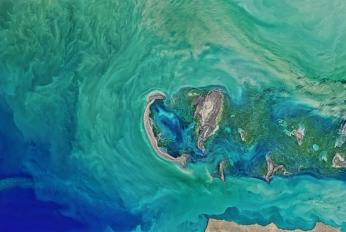 Article - Impact of the Alien Species Mnemiopsis leidyi A. Agassiz, 1865 on Fish of the Caspian SeaMon, 16/07/2018 - 15:13The data of long-term ecological studies (1999–2014) are used for assessing the impact of a new Caspian invader Mnemiopsis leidyi A. Agassiz, 1865 on marine and anadromous fish species. The introduction of the ctenophore and its massive development in the Caspian Sea have mainly affected planktophagous fish, especially the m
Article - Impact of the Alien Species Mnemiopsis leidyi A. Agassiz, 1865 on Fish of the Caspian SeaMon, 16/07/2018 - 15:13The data of long-term ecological studies (1999–2014) are used for assessing the impact of a new Caspian invader Mnemiopsis leidyi A. Agassiz, 1865 on marine and anadromous fish species. The introduction of the ctenophore and its massive development in the Caspian Sea have mainly affected planktophagous fish, especially the m
- Description
The data of long-term ecological studies (1999–2014) are used for assessing the impact of a new Caspian invader Mnemiopsis leidyi A. Agassiz, 1865 on marine and anadromous fish species. The introduction of the ctenophore and its massive development in the Caspian Sea have mainly affected planktophagous fish, especially the most abundant species anchovy sprat (Clupeonella engrauliformis Borodin, 1904) and sturgeons (Family Acipenseridae). Mnemiopsis leidyi is one of the main negative factors preventing the restoration of the populations of Caspian fishes, especially anchovy tyulka. The critical state of the resources of the spawning parts of sturgeon populations (Family Acipenseridae) has been reinforced as a result of the massive development of M. leidyi.
- Attached documents
- Metadata
- Year
- 2018
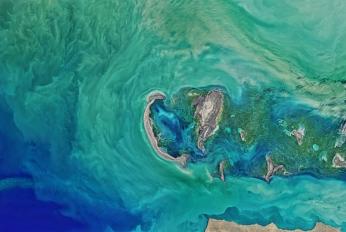 Caspian Environment Programme - Transboundary Diagnostic Analysis Revisit (2007)Tue, 12/06/2018 - 11:59The CEP TDA Revisit was completed in December 2007 following an intensive desk study of materials collected from the second phase of the Caspian Environment Programme. The intention of the CEP TDA Revisit is to provide a follow on review of the priority transboundary issues, to assess the efforts conducted during the CEP Pha
Caspian Environment Programme - Transboundary Diagnostic Analysis Revisit (2007)Tue, 12/06/2018 - 11:59The CEP TDA Revisit was completed in December 2007 following an intensive desk study of materials collected from the second phase of the Caspian Environment Programme. The intention of the CEP TDA Revisit is to provide a follow on review of the priority transboundary issues, to assess the efforts conducted during the CEP Pha
- Description
The CEP TDA Revisit was completed in December 2007 following an intensive desk study of materials collected from the second phase of the Caspian Environment Programme. The intention of the CEP TDA Revisit is to provide a follow on review of the priority transboundary issues, to assess the efforts conducted during the CEP Phase II implementation, and to extrapolate where additional efforts are warranted. The SAP and NСAPs are reviewed followed by an analysis of the priority areas of concern as identified in the SAP. The issues addressed in the TDA are: decline in biodiversity; decline in environmental quality (pollution); decline in bioresources (fisheries); decline in coastal infrastructure and habitat; and impacts of the oil industry in the region. This is supplemented by an analysis of governance mechanisms, socioeconomic conditions in the region, and stakeholder analysis and public involvement strategy.
- Attached documents
- Metadata
- Year
- 2007
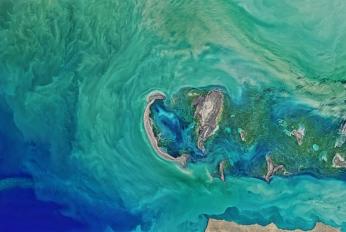 Caspian Environment Programme - Transboundary Diagnostic Analysis for the Caspian Sea. Vol. 2 (2002)Tue, 12/06/2018 - 11:55This volume aims to provide background information on the Caspian Sea in order to support the recommendations in the National Caspian Action Plans (NCAPs) and the Strategic Action Programme (SAP). Thus, this TDA is not merely a State of the Environment report, but also a look into the future based on the current political si
Caspian Environment Programme - Transboundary Diagnostic Analysis for the Caspian Sea. Vol. 2 (2002)Tue, 12/06/2018 - 11:55This volume aims to provide background information on the Caspian Sea in order to support the recommendations in the National Caspian Action Plans (NCAPs) and the Strategic Action Programme (SAP). Thus, this TDA is not merely a State of the Environment report, but also a look into the future based on the current political si
- Description
This volume aims to provide background information on the Caspian Sea in order to support the recommendations in the National Caspian Action Plans (NCAPs) and the Strategic Action Programme (SAP). Thus, this TDA is not merely a State of the Environment report, but also a look into the future based on the current political situation, socio-economic conditions, and legal/regulatory framework.
- Attached documents
- Metadata
- Year
- 2002
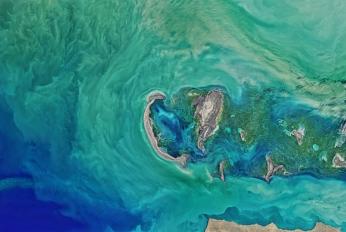 Caspian Environment Programme - Transboundary Diagnostic Analysis for the Caspian Sea. Vol. 1: Executive Summary and Environmental Quality Objectives (2002)Tue, 12/06/2018 - 11:54This TDA relies on and benefits from the dedicated work of numerous individuals, agencies, institutes, projects and corporations. The major building blocks are the studies and research works conducted and carried out by the Caspian Regional Thematic Centres. These works have been mostly produced by the national experts of th
Caspian Environment Programme - Transboundary Diagnostic Analysis for the Caspian Sea. Vol. 1: Executive Summary and Environmental Quality Objectives (2002)Tue, 12/06/2018 - 11:54This TDA relies on and benefits from the dedicated work of numerous individuals, agencies, institutes, projects and corporations. The major building blocks are the studies and research works conducted and carried out by the Caspian Regional Thematic Centres. These works have been mostly produced by the national experts of th
- Description
This TDA relies on and benefits from the dedicated work of numerous individuals, agencies, institutes, projects and corporations. The major building blocks are the studies and research works conducted and
carried out by the Caspian Regional Thematic Centres. These works have been mostly produced by the national experts of the Caspian countries and have been effectively led and substantially assisted by the National Focal Points (NFPs) and the Management Advisory Group and Inter-sectoral Assistants (MAGICAs). Production of the TDA would have not been possible without the efficient project execution assistance of UNOPS. The overall conceptualization, design, production monitoring and editing of the TDA has been led by the Programme Coordination Unit (PCU) including the Data and Information Management Theme in Baku, Azerbaijan.- Attached documents
- Metadata
- Year
- 2002
Document

Орнитологические исследования в странах Северной Евразии : тезисы XV Междунар. орнитолог. конф. Северной Евразии, посвящённой памяти акад. М. А. Мензбира
Document
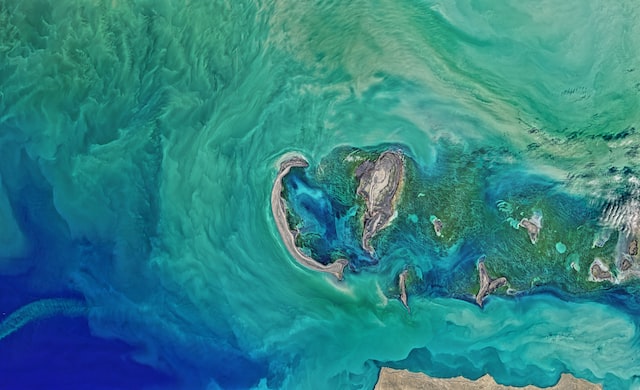
Caspian Environment Monitoring Programme - 2012
Document
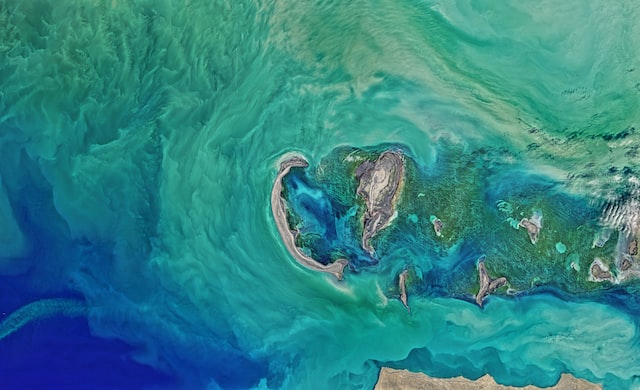
Draft Caspian Sea Plan Concerning Regional Cooperation in Combating Oil Pollution in Cases of Emergency
Document

Strategy for Civil Society Engagement in the Caspian Sea Marine Environment
Document

Strategic Convention Action Programme (SCAP)
Document

Rules of Procedure of the Tehran Convention
Document

Financial Rules for the Administration of the Trust Fund for the Tehran Convention
Document

Draft Caspian Regional Action Plan on Marine Litter
Document

Agreement on Cooperation in the Field of Hydrometeorology of the Caspian Sea
Document

Agreement on Cooperation in Emergency Prevention and response in the Caspian Sea
Document

Agreement on Conservation and Rational Use of the Aquatic Biological Resources of the Caspian Sea
Document

Convention on the legal status of the Caspian Sea
Document
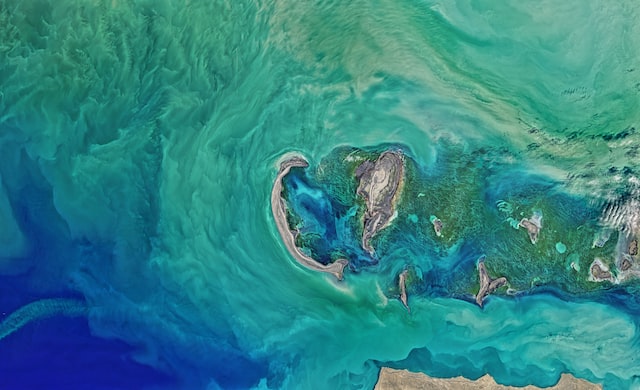
Proceedings of the Scientific Conference on the Climate Change in the Caspian Sea region - 2021
Document
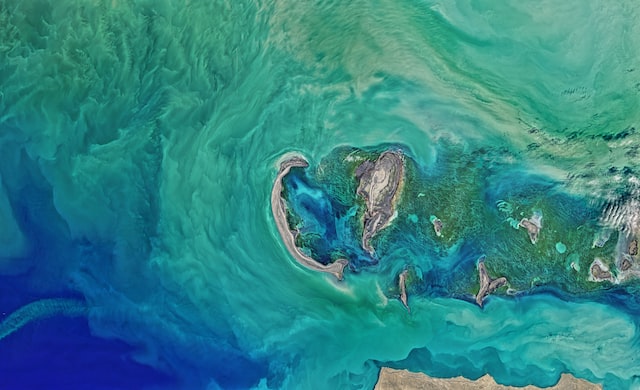
Caspian Sea State of Environment Report - SoE 2 (2019)
Document

Caspian Sea State of Environment Report - SoE 1 (2011)
Document
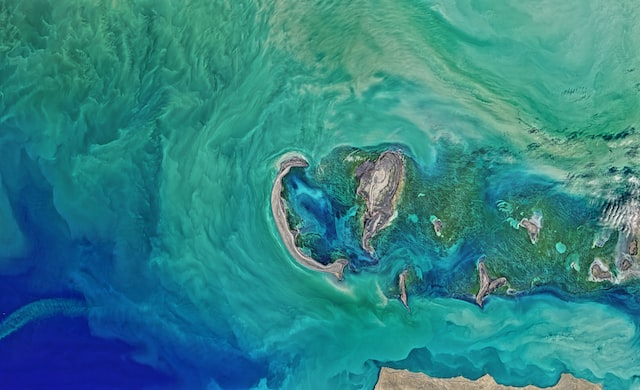
Article - Long-term and seasonal Caspian Sea level change from satellite gravity and altimeter measurements
Document
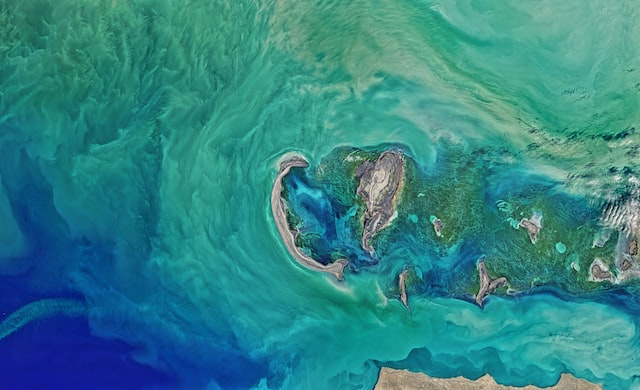
Article - Impact of the Alien Species Mnemiopsis leidyi A. Agassiz, 1865 on Fish of the Caspian Sea
Document
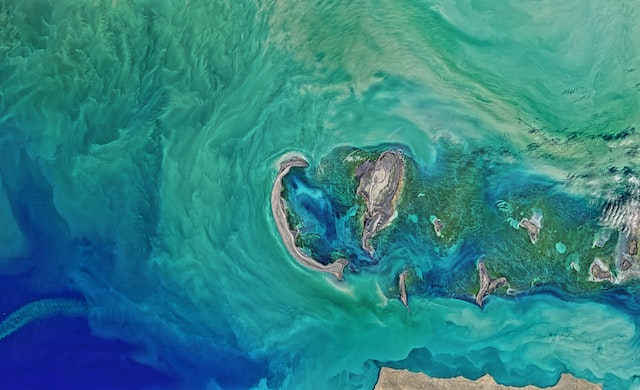
Caspian Environment Programme - Transboundary Diagnostic Analysis Revisit (2007)
Document
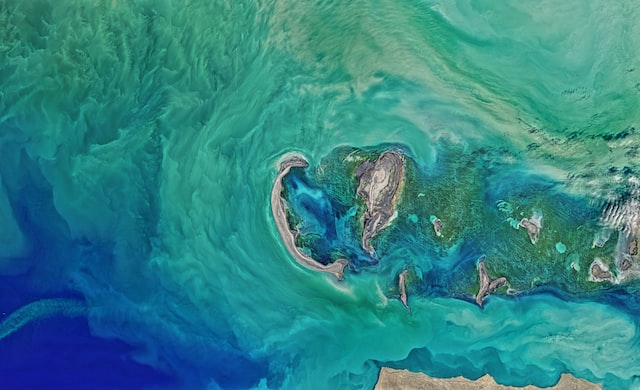
Caspian Environment Programme - Transboundary Diagnostic Analysis for the Caspian Sea. Vol. 2 (2002)
Document
